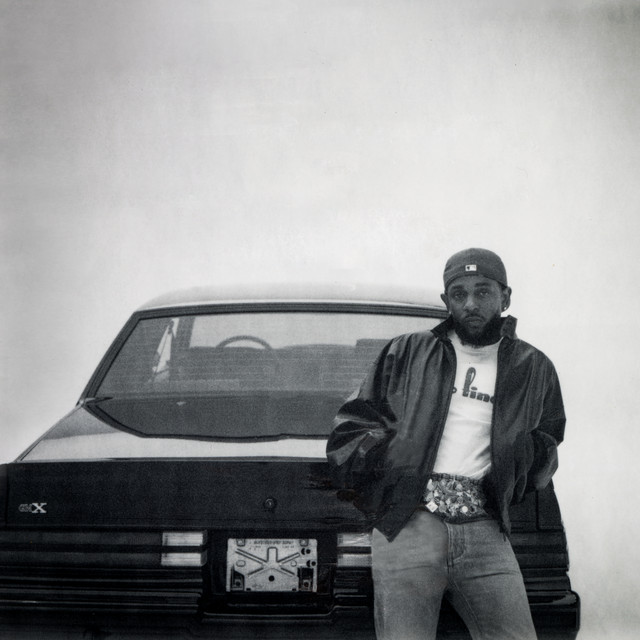
Photo courtesy of PGLang.
About six months after the historic rap battle between Kendrick Lamar and Drake, Kendrick surprised the world by suddenly releasing his sixth studio album “GNX” on Nov. 22, 2024.
It stands out as being one of the more disjointed projects in his discography. Lacking the storytelling and thematic elements that Kendrick is most notorious for including in his albums, “GNX” serves more as a love letter to the culture and the city that Kendrick was born in — Compton.
”GNX” features many samples from iconic artists, with 2Pac, SWV, Luther Vandross and Debbie Deb being the most notable.
Stepping away from the G-funk-inspired sound that he utilized in “Good Kid, M.A.A.D City,” Kendrick still manages to embody the West Coast in a different manner on “GNX” by including bouncy, upbeat tracks that showcase his ability to make hits as well as deep cuts.
Starting with the most anticipated song on “GNX” and the second song on the tracklist, “Squabble Up” was first featured as a teaser at the beginning of the “Not Like Us” music video released earlier that year.
“Squabble Up” is the perfect rally song. Sitting at the beginning of the album, it encapsulates the West Coast sound that remains throughout the project. It stays on 10 the entire time and doesn’t let up until the very end.
“Luther” is the third track on the album and the most commercially successful, currently sitting at 1.1 billion streams on Spotify. Featuring the beloved queen SZA, it brings the pace of the album down by having a simple love song situated between a hype song and a deepcut.
“Luther” is very simple and cute, and the nostalgia factor added by the Luther Vandross sample definitely solidifies it as a banger.
The best tracks on “GNX” are the ones that have the most substance. Even though Kendrick shies away from his usual storytelling method on this album, two songs really exemplify the skills that have put him at the top of the current rap game.
On the track “Reincarnated,” Kendrick tells the story of different musical artists from the past whose lives mirror his own, leading him to believe they are past incarnations of himself.
The first verse is told from the perspective of John Lee Hooker, a blues singer from Clarksdale, Mississippi who influenced the genre significantly. The second verse is often interpreted to be about either Billie Holiday or Dinah Washington — both jazz singers during the Jim Crow era who died from substance use disorder.
The final verse brings the audience to the present day, with Kendrick rapping about his own experiences of finding his calling in music, tying it back to the theme of reincarnation and how music seems to find him in every life he’s born into.
Toward the end, Kendrick likens himself to Lucifer and draws parallels between the Devil’s fall from heaven and his own rise to fame leading to greed. He adds a twist by acknowledging his faults and vowing to be better, diverging from the Devil’s refusal to take accountability as portrayed in Christian mythology.
One detail from “Reincarnated” that I really enjoy is the use of 2Pac’s “Made Niggas” instrumental, as well as Kendrick’s emulation of 2Pac’s flow from that song. In his previous works, Kendrick has claimed to be the successor of the late rapper numerous times. This detail further services the theme of reincarnation present in the song.
The second storytelling song on the album that really caught my ear was “Heart Part 6.” The “Heart” series is a group of songs that Kendrick typically releases before a major project.
“The Heart Part 6” tells the story of how Kendrick's initial label, Top Dawg Entertainment, came to be. It’s the classic come-up story that most rappers typically touch on at some point during their careers. Its heartfelt nature comes down to the nostalgic timbre Kendrick uses to describe the early days of TDE.
While he makes it clear that trying to get the label going was a struggle, he reminisces about the times he shared with other members of the label and marvels at how much the group has grown since its beginnings.
The sample of SWV’s “Use Your Heart” adds to the nostalgia and gives the song a warmer feeling overall.
If we were to view Kendrick’s discography as a book series, I think “GNX” fits in perfectly with the narrative. Following the therapy that he goes through in “Mr. Morale and the Big Steppers,” his victory against Drake, and his sweep at the Grammys, “GNX” symbolizes an era of healing, culture and community in Kendrick’s life.
After a few years long drought, Hip-Hop is slowly starting to resemble a culture and community that people can connect with and bond over. The unilateral approval and acceptance of “GNX” is a testament to that.
While it certainly wasn’t the only banger project that dropped in 2024, “GNX” was a nice cherry on top to a year filled with many great moments for Hip-Hop.
8/10